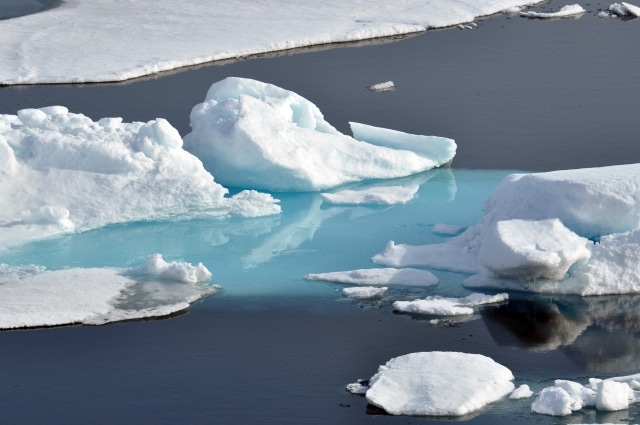The image of polar ice caps is being used by both sides of the climate debate, but in the United States there’s one political faction whose claims may be more ideologically driven than others.
According to a new study by the University of New Hampshire, American right-wing Tea Party supporters are most likely to base their understanding of climate change on political ideology rather than science.
The survey, published in Polar Geography, shows that Tea Partiers – who call for minimal government intervention and are known for their climate scepticism – exhibit a high level of self-assessed understanding of climate science, combined with a low level of knowledge on polar facts.
“These results support the conclusion that Tea Party supporters’ sense of understanding about climate change disproportionately reflects ideology rather than science knowledge,” the report concludes.
Basic Polar Facts
The study examined a series of New Hampshire state surveys, conducted between 2011 and 2015, ranking public knowledge on basic polar facts.
Questions included whether the respondent thought Arctic sea ice area had declined in the past 30 years and whether the melting of Greenland and Antarctic land ice – or Arctic sea ice – could potentially raise sea levels the most. Respondents also had to rank their perceived level of knowledge on the issue.
The study found that climate change understanding, more often than not, has an ideological basis.
Almost half of those surveyed (47 percent) scored low on factual knowledge but high on self-assessed understanding of the issue. This is most prevalent among Tea Party supporters (61 percent) while Democrats, Republicans and Independents appeared roughly similar (between 41–47 per cent).
As the study explains, while a higher self-assessed understanding of climate change among Democrats, Independents and, to some degree, Republicans is more likely to correlate with knowledge that, for example, sea ice has declined, the opposite holds true for Tea Party supporters.
“Our surveys find a paradoxical combination of high self-assessed understanding of climate change with generally low knowledge of basic facts.”
Rejecting Science
Early rounds of the survey asked three questions: two with political implications and one without.
Data shows that Arctic summer sea ice coverage has been declining. But, when asked whether or not they thought summer sea ice covered a larger or smaller area than 30 years ago, seven out of 10 respondents got it right while just 40 percent of Tea Partiers answered correctly.
“We see some people rejecting scientific reports about melting Arctic sea ice,” the researchers commented, “and eager to accept weakly founded claims of recovery.”
Later surveys added two more uncontentious questions about the geography of the North and South Poles. Only eight percent of respondents answered correctly that the North Pole is characterised by floating ice while the South Pole is a landmass covered in thick ice. Less than half (between 38–46 percent) got one of these two questions correct.
“Polar questions are by no means a broad test of climate knowledge, but they involve background information that anyone moderately well informed about climate should know,” the study explains.
“Unfortunately, climate change has emerged as one of the most politically disputed issues among US political leaders and [the] public,” the report states. “Climate change beliefs correlate so strongly with ideology that some analysts view both as indicators of the same thing… Concern about polar problems generally increases with science literacy, but political orientation can modify this science-literacy effect.”
Photo: US Geological Survey via Flickr
Subscribe to our newsletter
Stay up to date with DeSmog news and alerts







